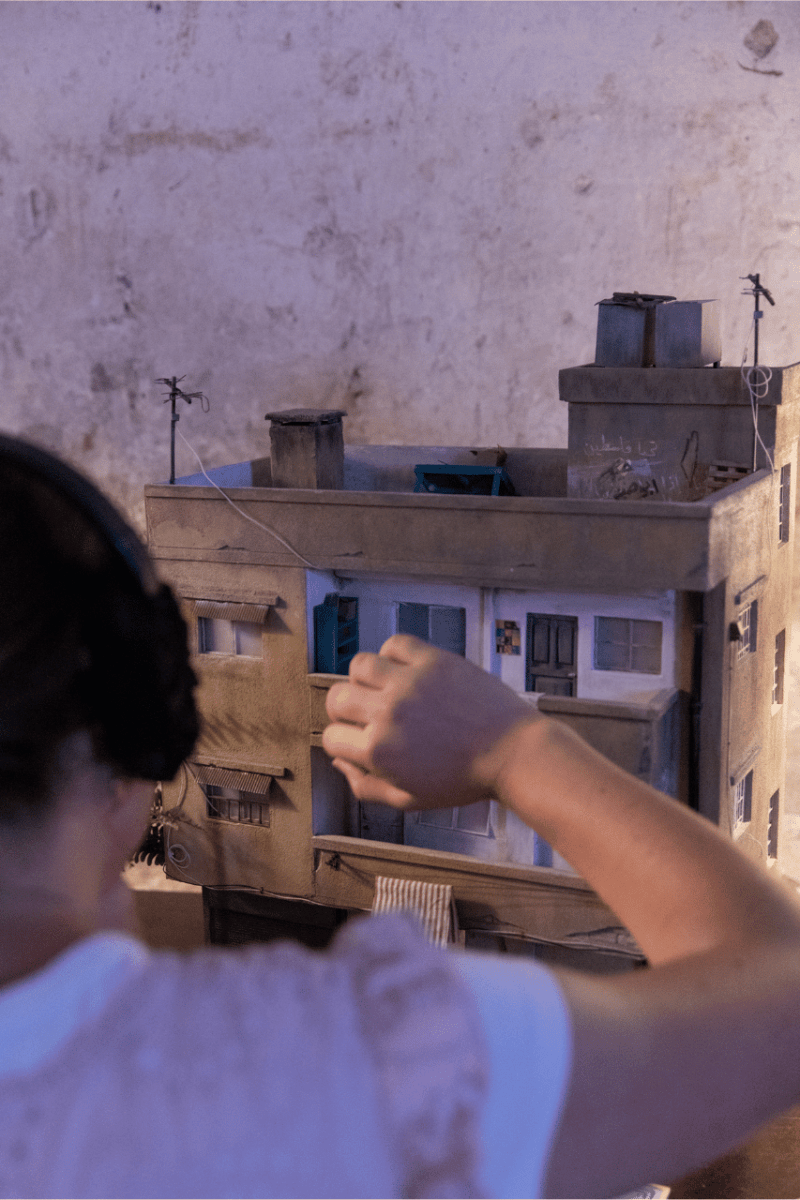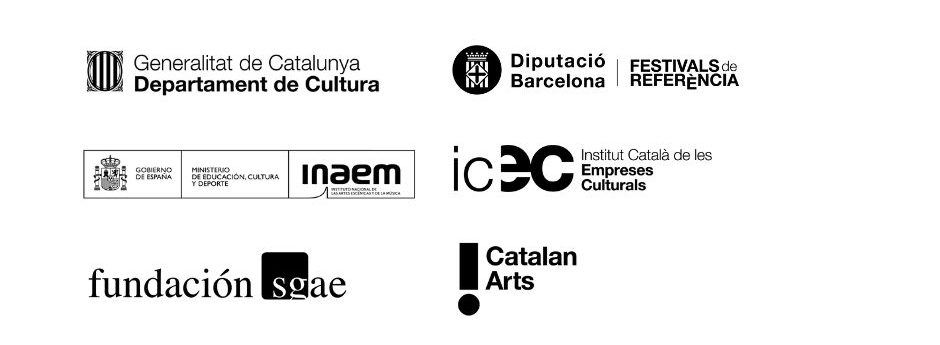TNT 2024 SPECIAL PASS
5 shows x 35 euros
35 €

· Thursday September 26th from 17 h to 21 h
· Friday September 27th from 16 h to 21 h
· Saturday September 28th from 11 h to 14 h + from 17 h to 21 h
📍Arxiu Tobella
(see location on the map)
Duration: 15 min / Activation: every 20 min
Catalan or English (you can choose)
4 euros
Show for single spectator
Foto: ©Pietro Bertora
Yarmouk is the biggest Palestinian refugee camp in Syria, a whole neighbourhood of Damascus built by families driven out of Palestine in 1948. Its residents became refugees for a second time when attacks by Daesh and the Al-Assad regime forced most of them to leave Syria. This is the tortuous displacement endured by the Palestinian artist Basel Zaraa, who is now living in Birmingham, and has to tell his 5-year-old daughter Laila about the place he grew up, and why they can’t go back.
To answer her questions, Basel has reconstructed a miniature version of the house in Yarmouk and now tells about it through audio, a photo album and a series of actions that will help us go back in time and understand the intimacy of one of the many families who are victims of one of the most cruel and shameful conflicts of our time. In this individual, condensed experience, we come face to face with the objects and are made to feel part of their story.
The home is one of the cornerstones of Palestinian culture, and has also become a symbol of its resistance and strength. After seventy-six years of systematic Israeli violence, displaced Palestinian women still keep the keys to their homes, even after the buildings have been bombed or demolished. As well as symbolising the demand for the right of return, these keys also show that a house is much more than four walls, and that perhaps the most dangerous to lose is our memory. So, just as Basel’s parents built a house in Yarmouk in the hope of one day returning to Palestine, Basel has built his own house made of memories: a house that fits inside a suitcase, but contains everything that is most important.
Dear Laila invites us to understand how everyday courage can stand up to trauma, while also transporting our senses to another time and space, just as Park Keito does with Rokatei (La cabana de les set cançons), Marta Izquierdo with Flip and Inés-Sybille Vooduness with Simbi en aigües astronòmiques.
Creation: Basel Zaraa
Commissioned by Good Chance Theatre, with support from Arts Council England
Translator and script editor: Emily Churchill Zaraa
Sound engineer: Pete Churchill
Hosted by:

Collaborators:

Media partners: